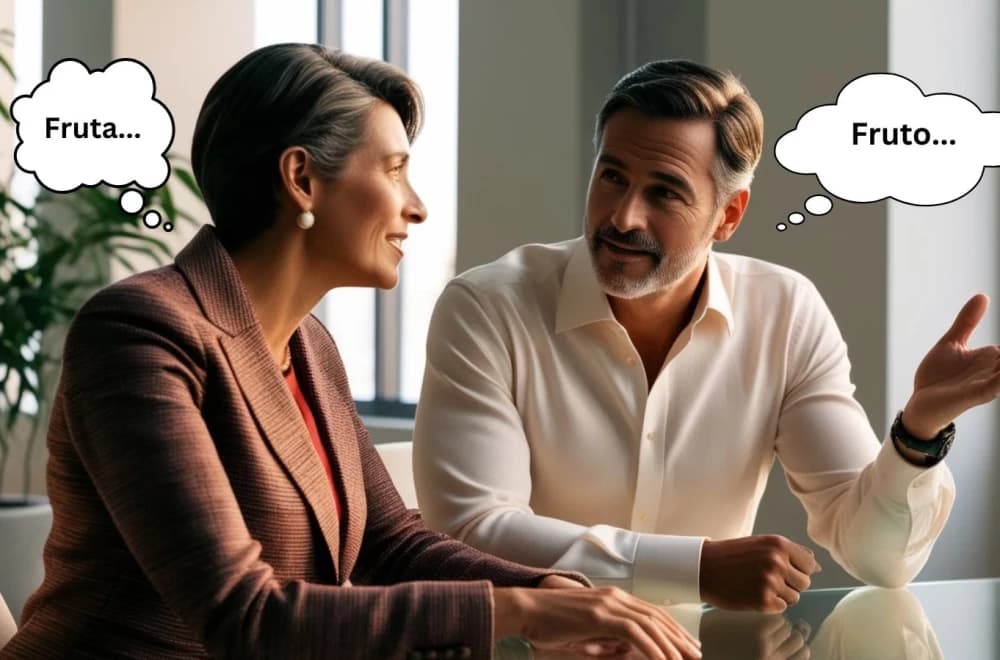Exploring the sweet and symbolic meanings of these gendered Spanish nouns.
This week, we’re squeezing out the differences between fruta and fruto, two Spanish nouns that look strikingly similar but carry different meanings depending on their gender and final letter.
First up is fruta (feminine), whose pronunciation can be heard here:
Una fruta refers to fruit in the familiar, edible sense—often sweet, juicy, and delicious:
- Le llevaba las frutas azucaradas que tanto le gustaban.
"He would bring her the crystallized fruits she liked so much." - Había un olor de frutas podridas.
"There was a smell of rotten fruit." - En el carro de postres hay estupendas tartas de frutas del tiempo.
"On the dessert trolley are fantastic tarts made with fruits of the season."
La fruta can also serve as a collective term for edible fruits:
- Hay que comer mucha fruta.
"You should eat a lot of fruit."
Now let’s shift to fruto (masculine), with a pronunciation you can find here:
While fruto also means "fruit," it’s used mainly in technical or botanical contexts to refer to the seed-bearing structure of a plant that comes from a flower. It may or may not be edible:
- El fruto es del tamaño de un garbanzo y tiene forma redondeada.
"The fruit is the size of a chickpea and is round in shape."
Additionally, fruto is often used figuratively to describe the product, outcome, or result of efforts, labor, or circumstances:
- Ahora empieza a recoger los frutos de su esfuerzo.
"She’s now beginning to reap the fruits of her efforts." - Este esfuerzo dio sus frutos treinta años más tarde.
"This effort bore fruit thirty years later." - Lo que hoy sucede no es fruto del azar.
"What’s happening today is not the product of chance."
When using articles or adjectives with these nouns, remember to make them agree accordingly:
- las frutas congeladas — "frozen fruits"
- aquellos frutos delicados — "those delicate fruits"
Did you know?
While in English we use "nut" to refer broadly to any dry fruit with a hard outer shell, Spanish uses the term fruto seco (literally "dry fruit"):
- avellanas, cacahuetes, almendras y otros frutos secos
"hazelnuts, peanuts, almonds, and other nuts"
To discover more about pairs of Spanish nouns that change meaning based on gender and ending, check back with us next week!







